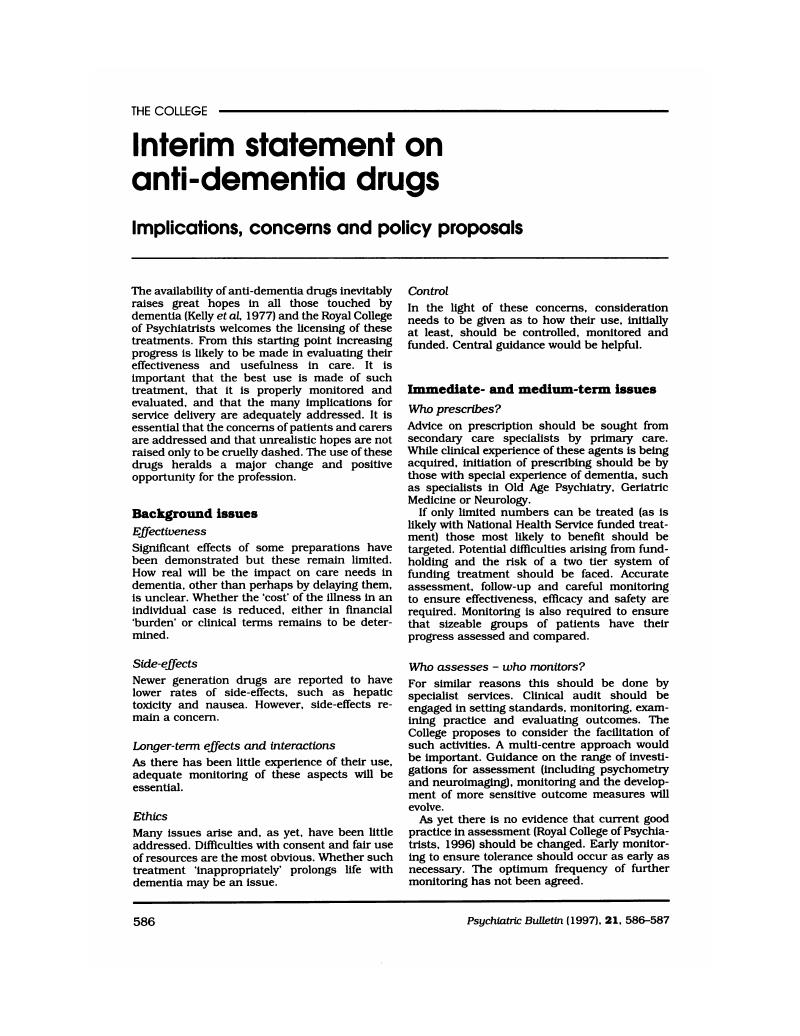Crossref Citations
This article has been cited by the following publications. This list is generated based on data provided by Crossref.
Swanwick, G. R. J.
Coen, R. F.
Coakley, D.
and
Lawlor, B. A.
1998.
Assessment of progression and prognosis in ?possible? and ?probable? Alzheimer's disease.
International Journal of Geriatric Psychiatry,
Vol. 13,
Issue. 5,
p.
331.
Spencer, Greg
and
Jolley, David
1999.
Planning services for the elderly.
Advances in Psychiatric Treatment,
Vol. 5,
Issue. 3,
p.
202.
Freyne, Aideen
2001.
Screening for dementia in primary care - a viable proposition?.
Irish Journal of Psychological Medicine,
Vol. 18,
Issue. 2,
p.
75.




eLetters
No eLetters have been published for this article.